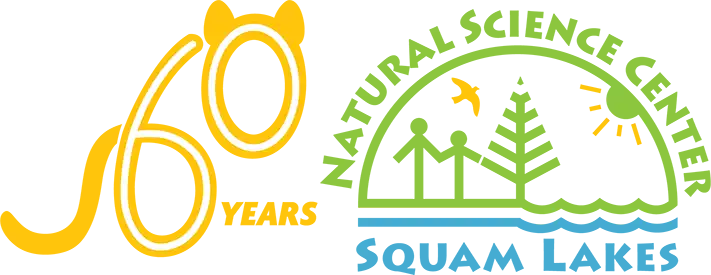Philosphy on Captive Animals
The wild animals at Squam Lakes Natural Science Center are ambassadors of their species, here for the purpose of educating our visitors about New Hampshire's natural world. Most are orphaned, injured, or otherwise unable to survive in the wild. Observing these animals up-close, together with experiencing our hands-on exhibits, offers visitors the opportunity to develop a deeper understanding of our native wildlife and appreciation of the natural world.
Squam Lakes Natural Science Center is committed to maintaining captive, primarily non-releasable native wildlife to enhance education on our exhibit trails and in our programs. The following guidelines uphold this commitment:
Standards for accepting or obtaining a new animal:
- Science Center must have a determined need/use for the animal
- Science Center must have the resources to care for the animal (space, budget, time)
- Science Center must be able to obtain the necessary permits
- Animal must be native to New Hampshire (snakes are exception)
- Animal must be a species that can be legally possessed and/or imported to New Hampshire
- Animal must have no long-term health problems Animal must be cosmetically acceptable (no full wing/limb amputations, etc.) Exceptions to this may be made on a case by case basis.
- Animal must be comparatively easy to maintain and able to adapt well to captivity
Naming
Our ambassador animals carry names inspired by the geographic locations where they came from (e.g., name of a state, county, city or a river). These place-based names serve an important purpose. They remind visitors that these are wild animals, not pets, whose circumstances brought them into human care. Each geographic name tells part of their story—a story that explains why they cannot return to their natural habitat. This naming convention helps our community understand that while these animals now serve as educational ambassadors, they remain wild animals, representing their wild counterparts and the environments they once called home.
Care and Wellbeing
Care and handling of our ambassador animal collection is specified in our Ambassador Animal Policy.
Breeding
As a general policy Squam Lakes Natural Science Center is a non-breeding facility. With few exceptions the animal collection does not contain threatened or endangered species, and as a result, animal breeding creates a burden of care and deposition of surplus animals. In circumstances where multiple animals of the same species are housed together the male(s) will be neutered.
Adopted by the Board of Trustees on April 26, 2025.


